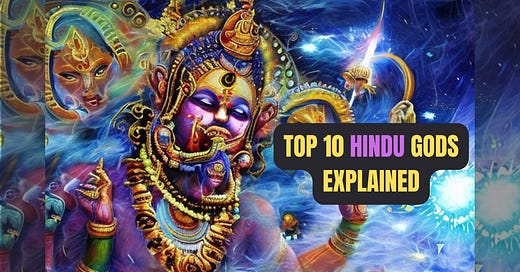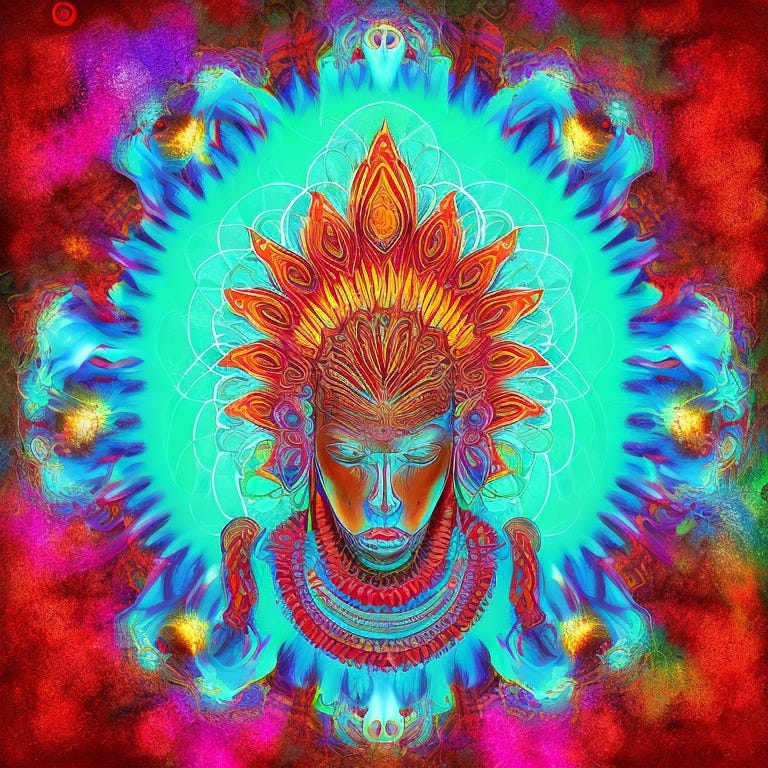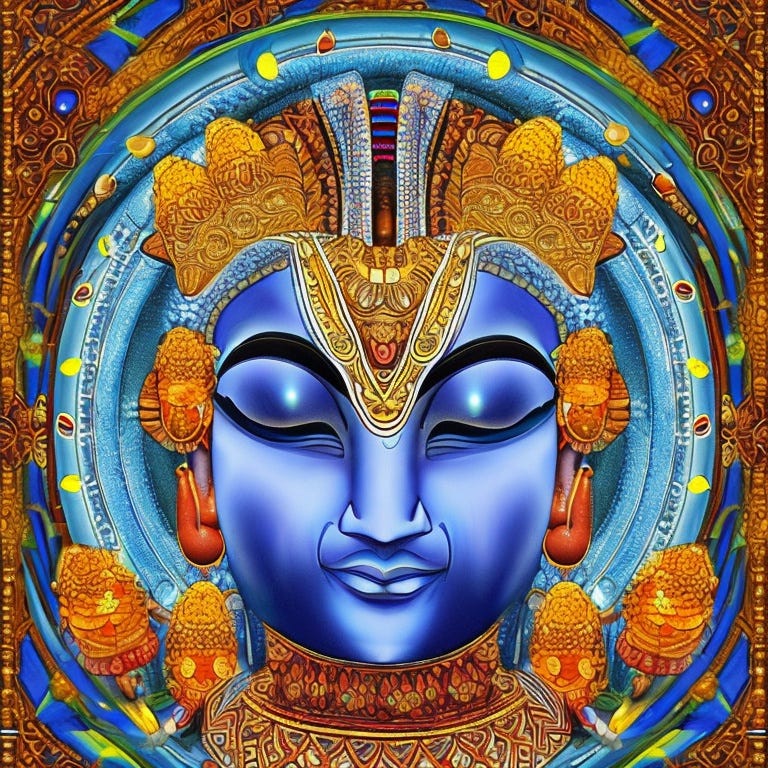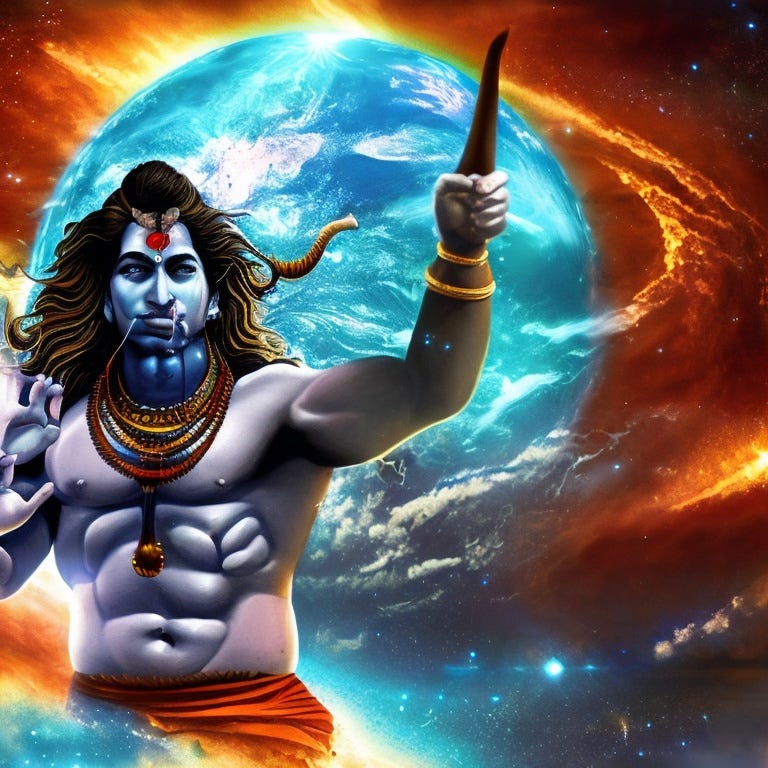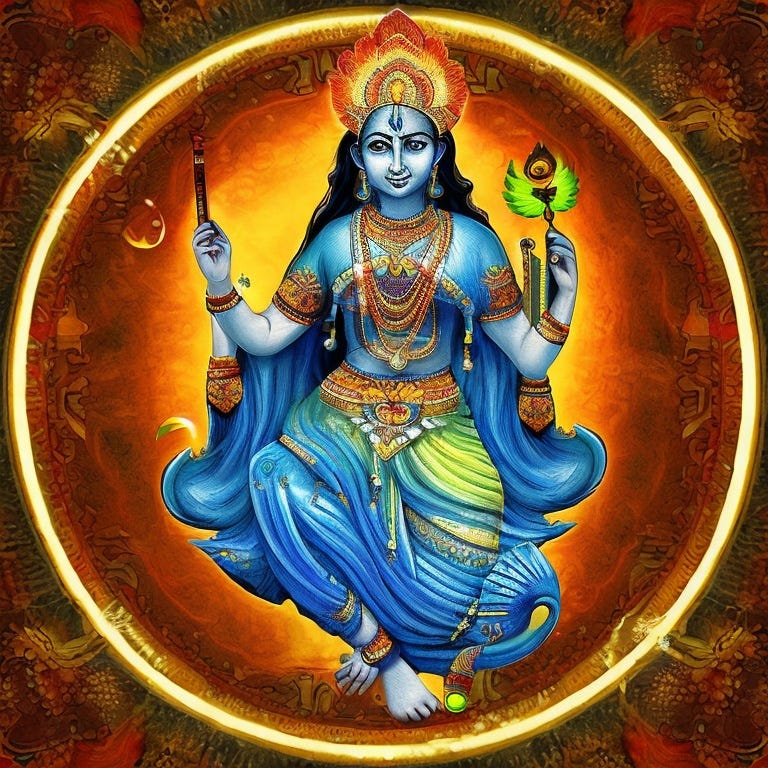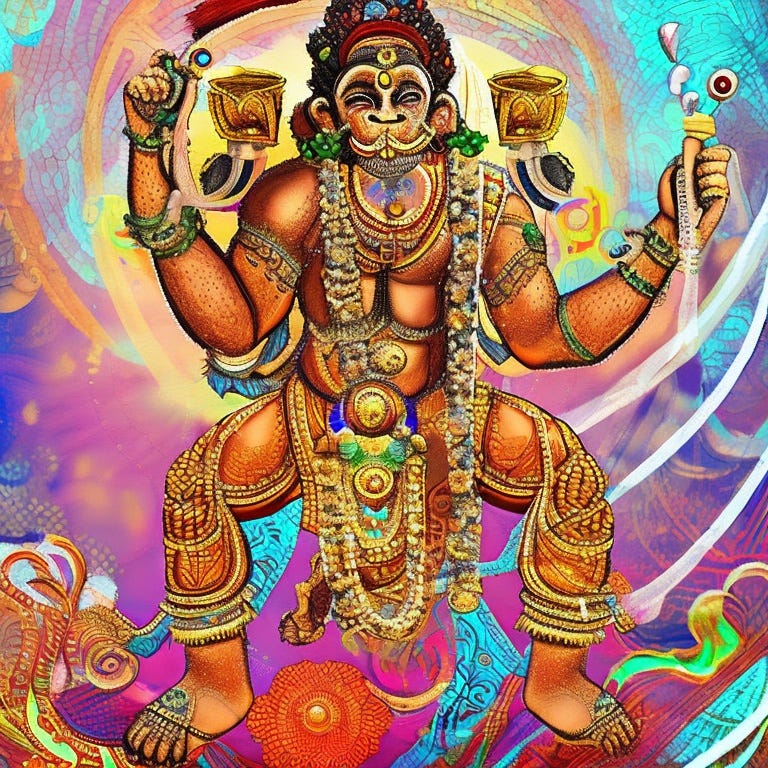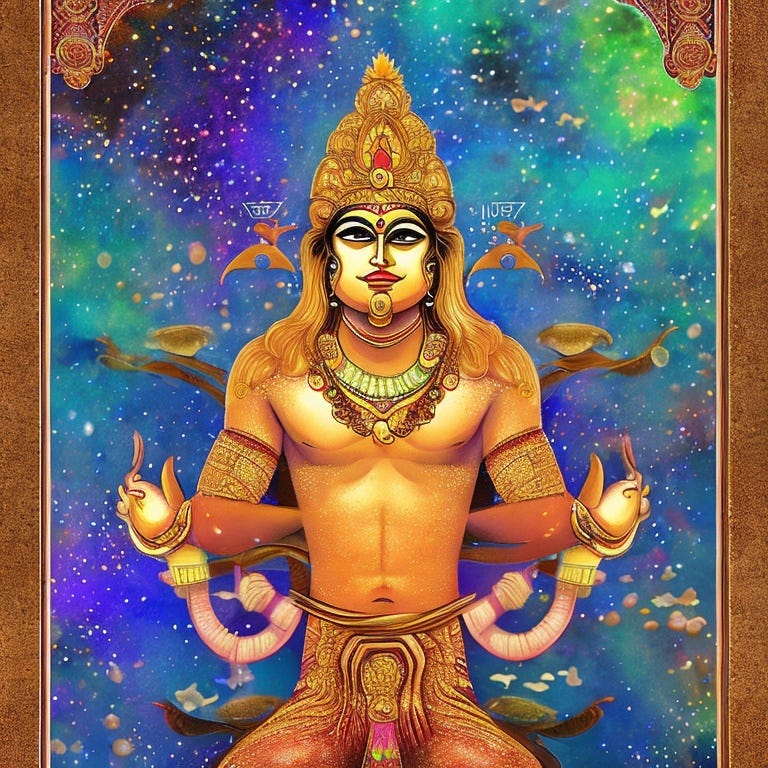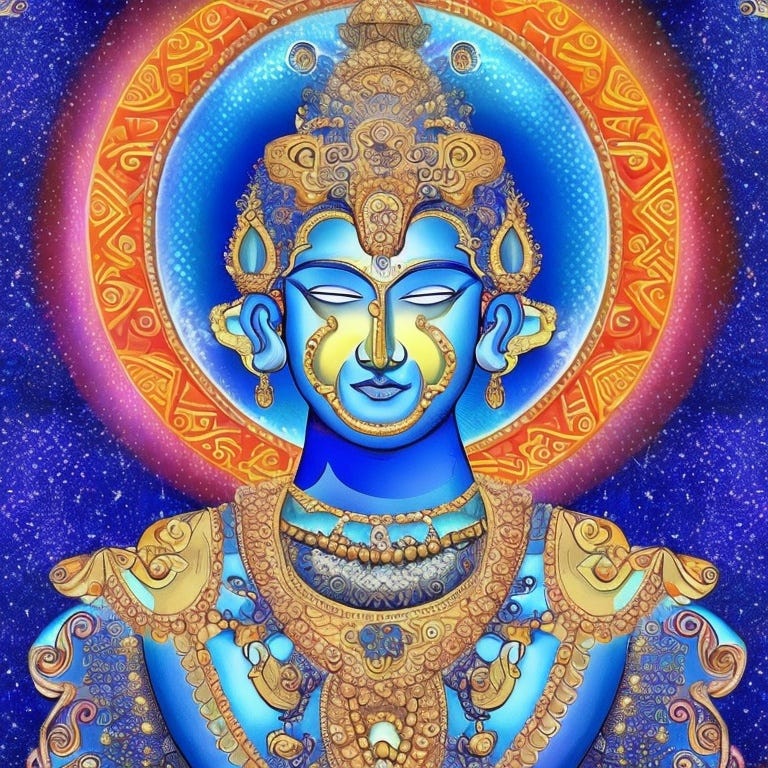Top 10 Most Important Hindu Gods Explained
Welcome to this comprehensive guide to the top 10 most important Hindu gods!
Hinduism is one of the oldest and most complex religions in the world, and its pantheon of gods and goddesses is vast and varied. In this article, we will explore the 10 most important Hindu gods and explain their roles and significance in Hinduism. We will also discuss the various stories and myths associated with each deity. So, let's dive in and learn more about these fascinating gods!

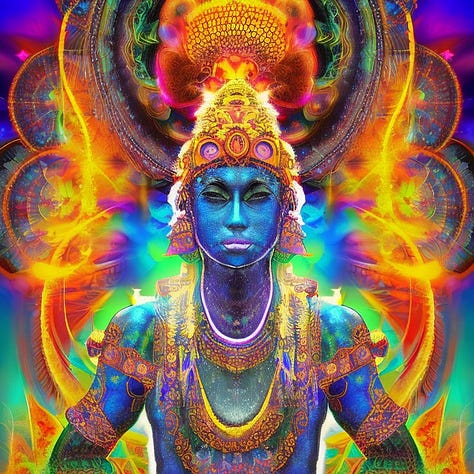
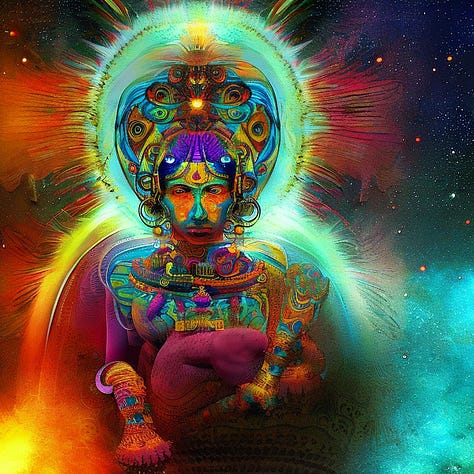
1. Brahma: The Creator God
Brahma is the Hindu god of creation and is considered to be the Supreme Being in Hinduism. He is the source of all creation and is responsible for the creation, maintenance, and destruction of the universe. He is often depicted as having four heads, symbolizing his all-encompassing nature, and is often accompanied by his consort, Saraswati, the goddess of knowledge and learning. Brahma is also known as the Creator God, as he is responsible for the creation of the universe and all living beings. He is also associated with the Vedas, the ancient Hindu scriptures, and is believed to be the source of all knowledge.
2. Vishnu: The Preserver God
Vishnu is one of the three major gods in Hinduism, along with Brahma and Shiva. He is the Preserver God, responsible for maintaining and preserving the universe. He is often depicted as having four arms, holding a conch shell, a discus, a mace, and a lotus flower. He is usually shown with blue skin and wearing yellow robes. Vishnu is believed to have taken nine avatars, or incarnations, in order to restore balance to the world. These avatars include Matsya (the fish), Kurma (the tortoise), Varaha (the boar), Narasimha (the man-lion), Vamana (the dwarf), Parashurama (the axe-wielding warrior), Rama (the prince), Krishna (the cowherd), and Kalki (the horseman). Vishnu is also associated with the concept of dharma, or righteousness. He is believed to be the protector of the righteous and the destroyer of evil. He is also associated with the concept of moksha, or liberation from the cycle of birth and death.
3. Shiva: The Destroyer God
Shiva is one of the most important gods in Hinduism and is known as the Destroyer God. He is part of the Hindu trinity, along with Brahma and Vishnu, and is responsible for the destruction of the universe in order to make way for a new cycle of creation. Shiva is often depicted as a yogi, meditating in the Himalayas, and is associated with the power of destruction and transformation. He is also associated with fertility, and is often depicted with his consort, Parvati. Shiva is also known for his fierce temper and is often seen as a protector of the righteous. He is also associated with the arts, particularly dance, and is often depicted performing the Tandava, a cosmic dance of destruction and creation.
4. Ganesha: The Remover of Obstacles
Ganesha is a Hindu deity who is widely revered as the remover of obstacles. He is the son of Shiva and Parvati and is usually depicted with the head of an elephant and a large pot-bellied body. He is known for his intelligence and wisdom and is often invoked at the beginning of any important venture or journey. He is also known as the Lord of Beginnings and is believed to bring success, prosperity, and good luck. He is also believed to be the protector of travelers and the guardian of knowledge. Ganesha is often invoked to remove any obstacles that may be blocking the path to success. He is also believed to be the one who grants boons and blessings to those who seek his help.
5. Lakshmi: The Goddess of Wealth and Prosperity
Lakshmi is a Hindu goddess associated with wealth, fortune, and prosperity. She is the wife and active energy of Vishnu, one of the principal deities of Hinduism. Lakshmi is also called Sri or Thirumagal because she is endowed with six auspicious and divine qualities, or gunas, and is the divine strength of Vishnu. As the goddess of wealth, she is often represented with symbols of wealth such as gold coins, elephants, and jewelry. She is also associated with beauty, fertility, and auspiciousness. In Hindu mythology, Lakshmi is said to bring good luck and is often invoked for financial prosperity. She is also a symbol of abundance and is often depicted with four hands, representing the four goals of human life: dharma (righteousness), kama (desires), artha (wealth), and moksha (liberation).
6. Saraswati: The Goddess of Knowledge and Arts
Saraswati is a Hindu goddess of knowledge, music, arts, wisdom, and learning. She is the consort of Lord Brahma, the creator of the universe, and is often depicted as a beautiful woman riding a swan or a peacock. She is also known as the goddess of speech and is associated with the power of discernment and creativity. She is believed to be the source of all knowledge and the embodiment of the creative power of the universe. She is also associated with the river Saraswati, which is considered to be the source of all knowledge and wisdom.
7. Hanuman: The Monkey God
Hanuman is a Hindu god and an important character in the Hindu epic Ramayana. He is a vanara (monkey-like humanoid) who aided Lord Rama in his quest to rescue his wife Sita from the demon king Ravana. Hanuman is known for his strength, courage, and devotion to Rama. He is also known for his ability to fly, which he used to travel to Lanka in search of Sita. He is often depicted with a mace, a symbol of his strength, and is often referred to as the "Monkey God". Hanuman is worshipped by Hindus all over the world and is seen as a symbol of strength, courage, and devotion.
8. Kartikeya: The God of War
Kartikeya is a Hindu god of war, the son of Shiva and Parvati. He is also known as Skanda, Murugan, and Subrahmanya. He is the commander of the army of the gods and is often depicted riding a peacock or carrying a spear. He is the god of courage, strength, and victory, and is often invoked in times of war. He is also associated with protection, fertility, and prosperity. He is the patron deity of the Tamil people and is widely worshipped in South India.
9. Indra: The King of the Gods
In Hindu mythology, Indra is the king of the gods and the leader of the Devas. He is the god of rain, thunder, and storms, and is often depicted as a powerful warrior riding a white elephant. He is also the god of war, and is associated with courage, strength, and power. He is the protector of the gods and is often seen as a symbol of justice and righteousness. He is also the god of fertility and is associated with the fertility of the land. He is the son of Dyaus and Prithvi, and is the brother of Agni, the god of fire.
10. Agni: The God of Fire
Agni is one of the most important gods in Hinduism. He is the god of fire, and is associated with the power of transformation. He is the messenger between the gods and humans, and is the one who carries offerings to the gods. He is also the god of the household, and is responsible for bringing prosperity and good luck to the family. He is often depicted as a red-skinned man with two heads, four arms, and three legs. He holds a ladle, a pot of ghee, and a flaming torch in his hands. He is also associated with the sun, and is sometimes referred to as the "son of the sun".
Conclusion:
Hinduism is a religion that is full of gods and goddesses, each with their own unique stories and characteristics. Each of these gods has a special place in Hinduism and is worshipped by millions of Hindus around the world. They are seen as symbols of strength, wisdom, and protection, and are believed to be able to bring good fortune and prosperity to those who worship them. Whether you are a Hindu or not, these gods are an important part of the Hindu culture and are worth learning more about.

